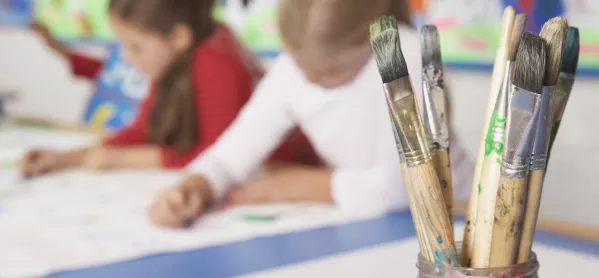Teachers and schools have never been under more pressure than they are now to prove that their children are making “good” progress. This is a challenge in any subject, but it is particularly difficult for teachers using arts-based approaches, who have traditionally struggled to produce data that offers an “objective” measure of the impact of their work.
If it is impossible to prove that the best way to increase children’s performance is through arts-based education practice, then why should busy teachers and schools invest time and money in delivering the curriculum through these practices? And why, in particular, should arts-based education be used when working with children with special educational needs and disability?
These are issues that I’ve been grappling with as part of an ongoing research project. Working with Purple Patch Arts, an arts-based education organisation, I’ve been spending time with children and young people in three SEND schools in the north of England and looking at how arts-based education impacts on their learning.
Purple Patch draws on classic literature as the inspiration for its creative curriculum sessions. This includes using the work of Shakespeare and Sylvia Plath - not writers that you would ordinarily find in the SEND school classroom.
The practitioners use a mixture of objects to bring the texts to life and evoke the children’s senses. The taste of chamomile tea, the smell of rose hip, the feel of a Shakespearean ruff and the sounds of Elizabethan music were all used to bring Shakespeare’s poetry to life. These sensory encounters produced interactions between students, arts-based practitioners and teachers as they supported one another to try new tastes and to touch new objects.
How should we measure ‘value’?
Through their engagement with a host of different objects and activities in the classroom, children who were usually described as “disengaged” or “disruptive” were transformed. Children with complex impairments stayed awake for the whole session and showed their enjoyment through their use of their body and sounds.
At the end of the first session with one class, the teacher called the arts-based practitioners back to say: “Did you see Jim? He was really into it. If you knew him, you’d know he’s never like that.”
This is where we see the value of this type of work. Our research suggests that arts-based practice furthers personal development and promotes moments of collective learning. We struggled to obtain data that can be neatly codified and measured, but instead found evidence in the changes that we saw in students’ attitudes to learning and in moments like the one I witnessed with Jim’s teacher.
I know the session that Jim took part in had value, and yet I cannot point to numbers that prove its impact. Perhaps this means we need to reconceptualise how we measure the value of the practices we are using, particularly when it comes to children with SEND.
Dr Katherine Runswick-Cole is senior research fellow in disability studies and psychology at Manchester Metropolitan University. You can find out more about her research project here.
Want to keep up with the latest education news and opinion? Follow TES on Twitter and like TES on Facebook




